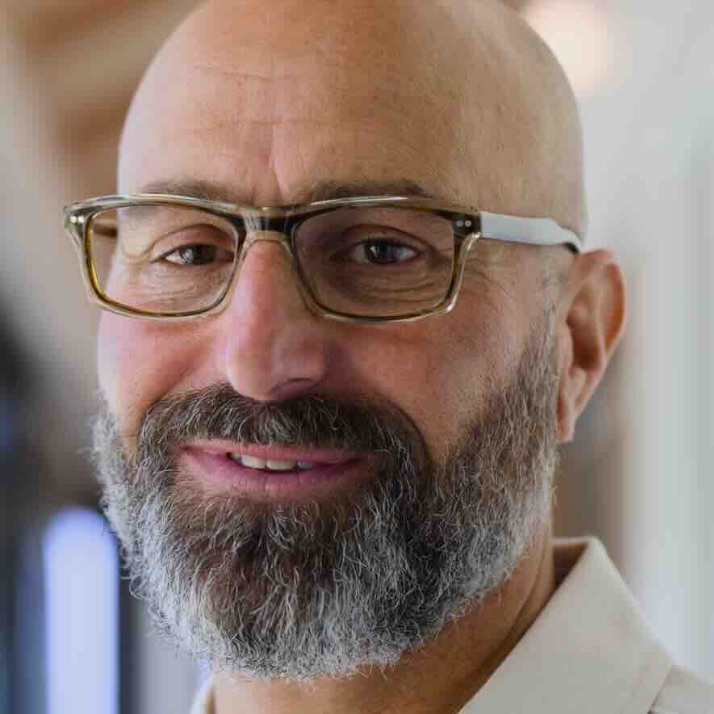Navigating Borderline Personality Disorder Therapy Options in Orlando
Navigating Borderline Personality Disorder therapy in Orlando includes in-person sessions, virtual teletherapy, individual treatment, and group formats. In-person care can offer structure and a safe setting, with options from Downtown and Winter Park to Lake Nona and College Park, including comprehensive DBT programs and skills groups. Teletherapy expands access across the metro—useful if I‑4 traffic, summer storms, or distance from areas like East Orlando or the UCF/Research Park corridor make travel tough—while still allowing consistent, evidence-based care. Individual therapy supports tailored goals and crisis planning, and group therapy (such as DBT skills groups) builds emotion regulation and interpersonal skills with peer support. MiResource’s directory helps you compare providers by location, specialization (DBT, MBT, schema therapy), and therapeutic approach so you can match your needs with the right fit.
Local factors can guide your choice, from proximity to SunRail stations and LYNX routes to evening hours and on-site parking near Thornton Park, Baldwin Park, or the Mills 50/Milk District area. If you live near International Drive or commute along I‑4, teletherapy can reduce travel time while maintaining continuity of care. Students and young adults around UCF or Valencia may prefer hybrid care, combining individual sessions with nearby DBT groups. MiResource makes it easy to filter Orlando providers by neighborhood, insurance, language, and modality, review profiles, and compare availability—so you can confidently start Borderline Personality Disorder treatment that fits your life.
Organizations that offer Supportive Services for Borderline Personality Disorder in Orlando
NAMI Greater Orlando offers family and peer-led support groups, psychoeducation (including classes helpful for those living with Borderline Personality Disorder and their loved ones), and advocacy near Downtown and the Lake Eola area. Aspire Health Partners provides crisis services, outpatient therapy, care coordination, and mobile response with locations accessible from Parramore and along East Colonial Drive. The Mental Health Association of Central Florida runs support, navigation, and the Outlook Clinic for low-cost psychiatric care near Mills 50 and Ivanhoe Village. Heart of Florida United Way 211 connects residents across Orlando, Baldwin Park, and South Orange Avenue corridors to support groups, crisis lines, and sliding-scale clinics 24/7; dial 211 or visit https://www.hfuw.org/211. Orange County Government’s Mental & Behavioral Health resources list local crisis centers, safety-net programs, and prevention services countywide, including near the I-4 corridor and Conway.
Hospital and campus-linked programs can also help. AdventHealth’s Center for Behavioral Health in Winter Park and near Health Village offers inpatient and outpatient care, crisis stabilization, and classes that can complement DBT-informed treatment plans. For additional referrals and community groups around UCF’s main campus and Waterford Lakes, 211 and NAMI Greater Orlando provide localized listings and schedules. Many of these organizations offer sliding-scale options, multilingual support, and family education to navigate BPD symptoms and crises. Use MiResource to find licensed Borderline Personality Disorder therapists in Orlando who provide evidence-based care, including DBT, and accept your insurance.
Emergency Care Services for Borderline Personality Disorder in Orlando
If you’re in immediate danger or thinking about harming yourself, call 911 or go to the nearest emergency department, such as AdventHealth Orlando Emergency Care or Orlando Health ORMC Emergency Care; urgent care centers can also provide same-day assessment and referrals for non-life-threatening crises. For 24/7 support, contact the 988 Suicide & Crisis Lifeline by calling or texting 988 or visiting https://988lifeline.org. In Orlando/Orange County, dial 211 (Heart of Florida United Way) for local crisis resources, including linkage to Mobile Response Teams and same-day behavioral health services. You can also access local crisis stabilization and mobile crisis services through Aspire Health Partners.
The Essentials of Borderline Personality Disorder
Borderline Personality Disorder (BPD) is a mental health condition marked by strong, rapidly shifting emotions, a fragile sense of self, and difficulty maintaining steady relationships. According to the National Institute of Mental Health and the American Psychiatric Association’s DSM-5, BPD often involves intense fears of abandonment, impulsive behaviors, and instability in mood and self-image that can lead to distress or risky actions. People may experience overwhelming anger, emptiness, or anxiety, and sometimes turn to self-harm or threats when emotions feel unmanageable.
In Orlando, living with BPD can feel especially challenging when balancing the pressures of work in the tourism and service industries, managing school responsibilities at UCF or Valencia, or coping with the social energy of a city that thrives on constant activity. Understanding Borderline Personality Disorder helps reduce stigma and encourages timely, compassionate support.
Common characteristics of BPD include “all-or-nothing” thinking, rapidly changing moods, and impulsive decisions—like overspending at shopping hubs, engaging in risky behaviors, or substance use—that can create problems later. Recognizing these patterns helps friends, family, and providers in Orlando respond with empathy and practical strategies. Effective treatments are available—especially Dialectical Behavior Therapy (DBT), which teaches skills for emotional regulation and relationship stability—offering real hope for recovery. By learning more, people in Orlando can connect to local care, crisis resources, and supportive communities that make daily life safer and more manageable.
Recognizing the Signs and Symptoms of Borderline Personality Disorder
Noticing the signs of BPD can help you better understand your experiences and take the next step toward care. If these feel familiar, support is available right here in Orlando.
- Intense, rapidly shifting emotions that feel overwhelming and can change within hours
- Strong fear of abandonment, such as anxiety when a loved one doesn’t respond to texts or pulls away
- Relationship ups-and-downs, swinging between closeness and feeling angry, hurt, or let down
- Impulsive behaviors—overspending at malls, risky sex, binge eating, or substance use—to cope with painful feelings
- A shaky sense of identity, feeling unsure who you are or where your life is headed
- Ongoing emptiness or numbness that lingers despite distractions or social activity
- Thoughts of self-harm or suicide, or sudden, explosive anger—clear signals to seek professional help right away
Exploring the Underlying Causes of Borderline Personality Disorder
Borderline Personality Disorder doesn’t stem from one single cause—it develops from a combination of factors. Understanding these influences can help reduce stigma and build compassion for yourself or others. For people in Orlando, this overview highlights some common contributors:
Biological factors:
- Family history of BPD or other mental health conditions
- Brain differences in areas linked to emotion regulation
- Neurochemical imbalances affecting mood stability
Psychological factors:
- Naturally sensitive temperament and strong emotional reactivity
- Challenges with impulse control and calming after stress
- A negative self-image shaped by chronic invalidation
Environmental factors:
- Childhood trauma, neglect, or abuse
- Unstable or chaotic family or relationship environments
- Major life stressors, frequent losses, or exposure to violence
For many in Orlando, these factors may be compounded by community pressures, whether that’s instability from seasonal jobs, the stress of relocation to a busy metro area, or navigating challenges in fast-paced service and entertainment industries.
The Impact of Borderline Personality Disorder on Daily Life
BPD can affect nearly every area of daily life, making even simple routines feel overwhelming. Many Orlando residents find that intense emotions, shifting moods, and fears of abandonment spill into relationships, work, and social life. These challenges are real—but they’re also manageable with support. Recognizing how BPD shows up in everyday ways is a first step toward compassion and meaningful change.
- Work or school performance: Struggling to focus, stay organized, or manage deadlines—whether in Orlando’s theme park industries, hospitality roles, or university classes.
- Relationships: Fears of rejection, frequent misunderstandings, or feeling “all or nothing” in closeness.
- Emotional well-being: Sudden mood shifts, sensitivity to criticism, or difficulty calming after emotional triggers.
- Daily routines: Impulsive choices, feeling overwhelmed by small tasks, or difficulty planning ahead.
- Physical health: Trouble sleeping, low energy, headaches, or stress-related stomach problems.
- Self-esteem and identity: Feeling unsure who you are, battling harsh self-criticism, or carrying guilt and shame.
- Social life: Pulling away from friends, skipping community events in Downtown Orlando or Lake Eola, or feeling isolated despite being surrounded by people.
Evidence-Based Treatments for Borderline Personality Disorder
There are proven, evidence-based treatments for Borderline Personality Disorder that can reduce symptoms and help you build a more stable, satisfying life. With the right support, many people see improvements in relationships, mood, and day-to-day functioning. If you’re in Orlando, you’re not alone—local professionals can guide you toward care that fits your needs and goals.
- Dialectical Behavior Therapy (DBT): A skills-based therapy that teaches mindfulness, emotion regulation, distress tolerance, and interpersonal effectiveness to reduce self-harm and crises.
- Cognitive Behavioral Therapy (CBT): Helps identify and change unhelpful thought patterns and behaviors that fuel intense emotions and conflict.
- Mentalization-Based Therapy (MBT): Builds the ability to understand your own and others’ thoughts and feelings, improving stability and relationships.
- Schema Therapy: Addresses deep-seated patterns (or “schemas”) formed early in life, helping you respond differently to triggers and stress.
- Medications: While there’s no single “BPD medication,” targeted use of antidepressants, mood stabilizers, or low-dose antipsychotics can ease symptoms like depression, anxiety, or impulsivity when prescribed by a clinician.
- Support groups and lifestyle skills: Peer support, regular sleep, balanced nutrition, movement, and reducing alcohol or Substance Abuse can strengthen coping and complement therapy; Orlando providers can help you find local options.
Things People Ask About Borderline Personality Disorder
- What are some common myths about Borderline Personality Disorder that aren’t true?
Myth: People with Borderline Personality Disorder are manipulative and impossible to treat; truth: many behaviors are coping responses to intense emotions, and evidence-based therapies like DBT and MBT help people improve and recover. Myth: BPD is just attention-seeking or a personality flaw; truth: it’s a complex mental health condition shaped by biological, psychological, and environmental factors, and seeking help is a sign of strength. Myth: People with BPD are dangerous or abusive; truth: most are not violent and can build healthy relationships with support and skills. Myth: Only women have BPD; truth: Borderline Personality Disorder affects all genders and is often underdiagnosed in men, with compassionate care available in Orlando.
- How do I talk to friends or family about my Borderline Personality Disorder without feeling judged?
Choose a calm, private time to talk about your Borderline Personality Disorder, and lead with “I” statements (e.g., “I feel…” “I need…”) to keep the conversation open and judgment-free. Set clear boundaries—let them know what’s helpful (listening, checking in) and what isn’t (arguing, ultimatums)—and agree on a pause word if emotions run high. Share simple resources so they can learn more, such as NAMI Greater Orlando, the Mental Health Association of Central Florida, or a short article/podcast you found meaningful; consider inviting them to a family session with an Orlando therapist familiar with BPD. Remind yourself you’re allowed to end the conversation if you feel unsafe or overwhelmed and revisit it later when everyone’s calmer.
- Can Borderline Personality Disorder get better on its own without professional help?
Borderline Personality Disorder can sometimes ease over time as people gain life experience, stronger coping skills, and more stable relationships, but symptoms often remain distressing without targeted support. Some individuals find partial relief through self-education, mindfulness, and supportive communities, yet progress is typically slower and less consistent. Evidence-based care—like Dialectical Behavior Therapy, trauma-informed therapy, and help for co-occurring issues—greatly improves stability and reduces crises, making improvement more durable. If you’re in Orlando, seeking professional support locally can accelerate recovery and provide tools to manage setbacks and sustain long-term change.
- What should I expect during my first Borderline Personality Disorder therapy session?
In your first Borderline Personality Disorder therapy session in Orlando, your therapist will start with warm introductions, explain confidentiality, and invite you to share what brings you in at your own pace. You’ll talk about your concerns, daily stressors, and hopes for treatment, while the therapist gently reviews your background, strengths, and any past supports. Together you’ll set a few initial, realistic goals and decide on next steps, such as session frequency or referrals to local Orlando resources if helpful. The tone is collaborative and nonjudgmental, so you can simply show up as you are and begin feeling supported.













